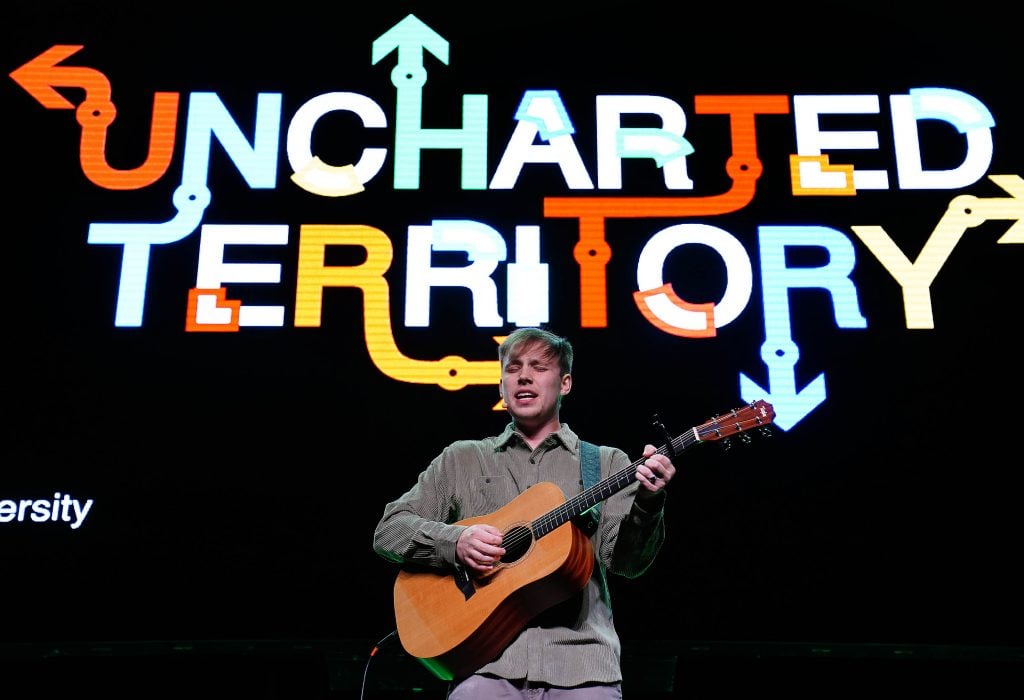
Photos by Ralph Freso / Slideshow
Grace Valentine was conscious of her large feet, humbled when she saw an Instagram photograph of an apartment better decorated than hers and demoralized when she acknowledged the beauty of the girl her ex dumped her for in high school.
But Valentine, an author and speaker, gradually learned that constantly comparing yourself to others wasn’t healthy.
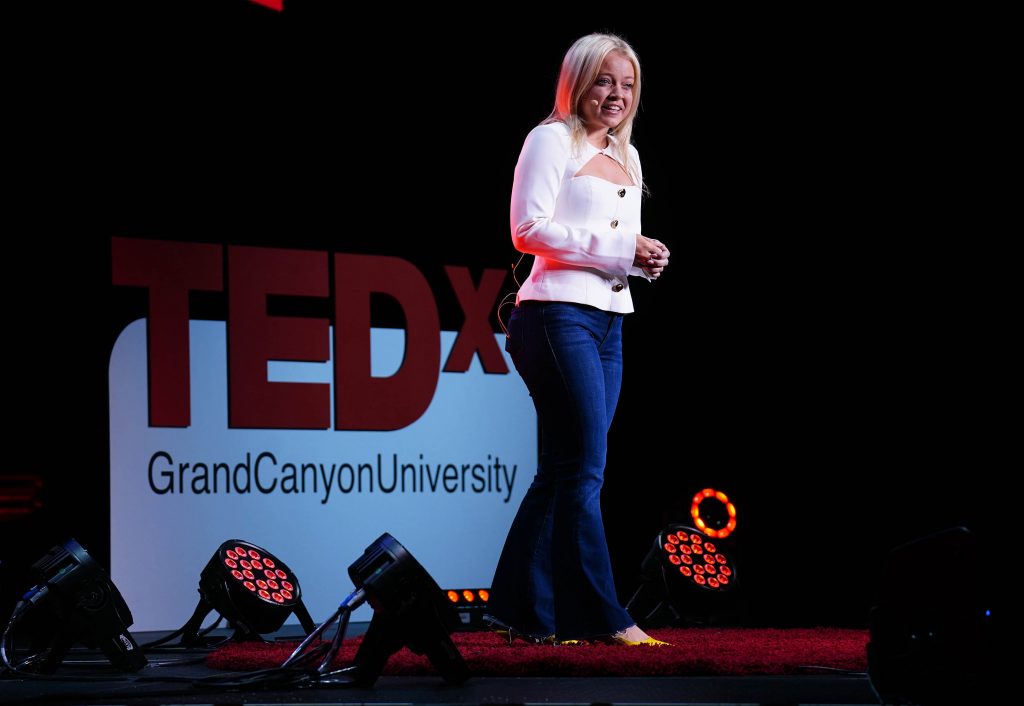
“If you choose comparison, you’re only going to be cruel to yourself,” Valentine said.
She was one of eight speakers who shared their experiences and wisdom at Grand Canyon University as part of Saturday night's TEDxGCU event, called "Uncharted Territory," at Global Credit Union Arena.

The speakers covered everything from Valentine's talk, “Choose Contentment Will Change Your Life,” to agricultural expert Michael Twining’s presentation, “Saving the Planet with Your Food Choices.”
TEDxGCU, unlike other TEDx events, is operated, organized and executed by GCU students, with this year's student group headed by president Abbie Gage.
Valentine believes discontent starts with the feeling of not having enough money, not driving a shiny car or not being engaged in enough cool relationships. “We desire more but don’t feel satisfied,” thus lacking confidence to chase dreams.
She said she began to realize people should be viewed as teammates, not as competitors.
This came into greater focus after realizing she had more opportunities than her grandmother, who “is my greatest cheerleader.”
“When you live in contentment, you cheer people on,” Valentine said.

Furthermore, “Contentment is a choice you have to make daily. When you do this, you will earn success.”
Tracy Mergler’s “Canary in a Coalmine” emphasized the need for employers and employees to cultivate a safe and vulnerable group inside the workplace.
Mergler, CEO of Safe Space Organization who had an eating disorder for 20 years, shared a story about canaries sent into coal mines before workers. If they didn’t return, the air was deemed too toxic for human inhalation.
She compared this to what she saw in some corporations, where employees departed in masses or suffered burnout.
“I am a canary,” said Mergler, who later revealed she lived a double life as a special education teacher but succumbed to laxatives during breaks.

She visited six treatment centers in 10 years and stressed the need for more connection and vulnerability in the workplace – especially in the post-pandemic world.
“When we don’t address and manage mental health, it becomes mental illness,” Mergler said.
“Just planting a seed of vulnerability, we have a chance to change the world, change companies and community.”
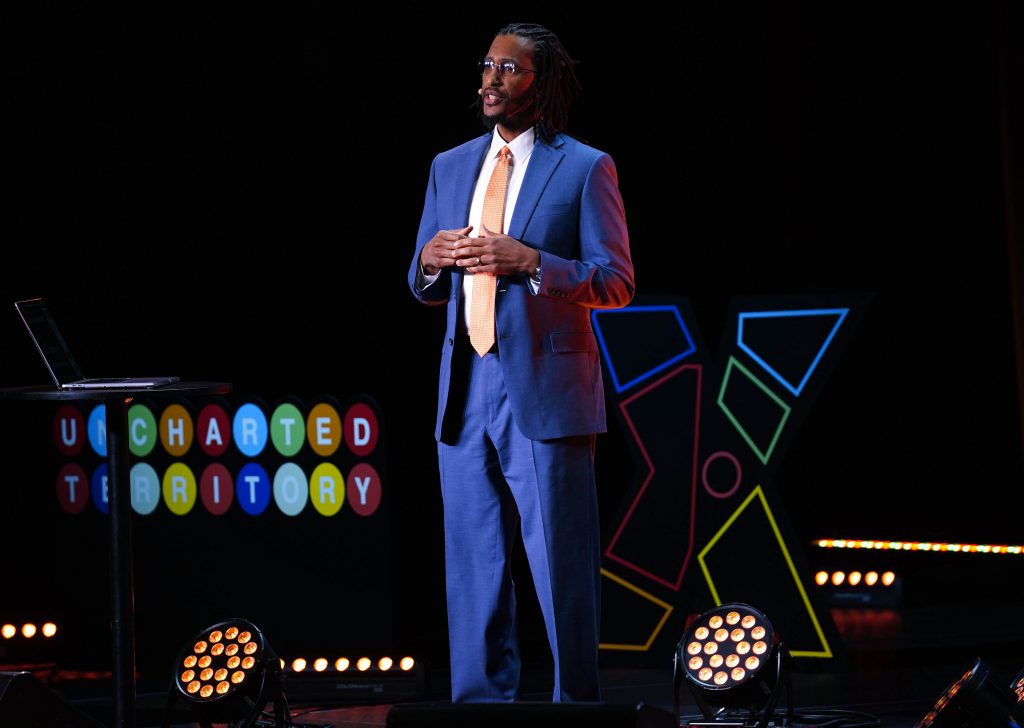
In discussing “From Neurodivergent Student to STEM Millionaires,” Kenneth Mims pointed out that billionaires Bill Gross (known as the Bond King) and Michael Burry (who predicted the 2008 financial crisis) were neurodivergent. Both have Asperger’s syndrome.
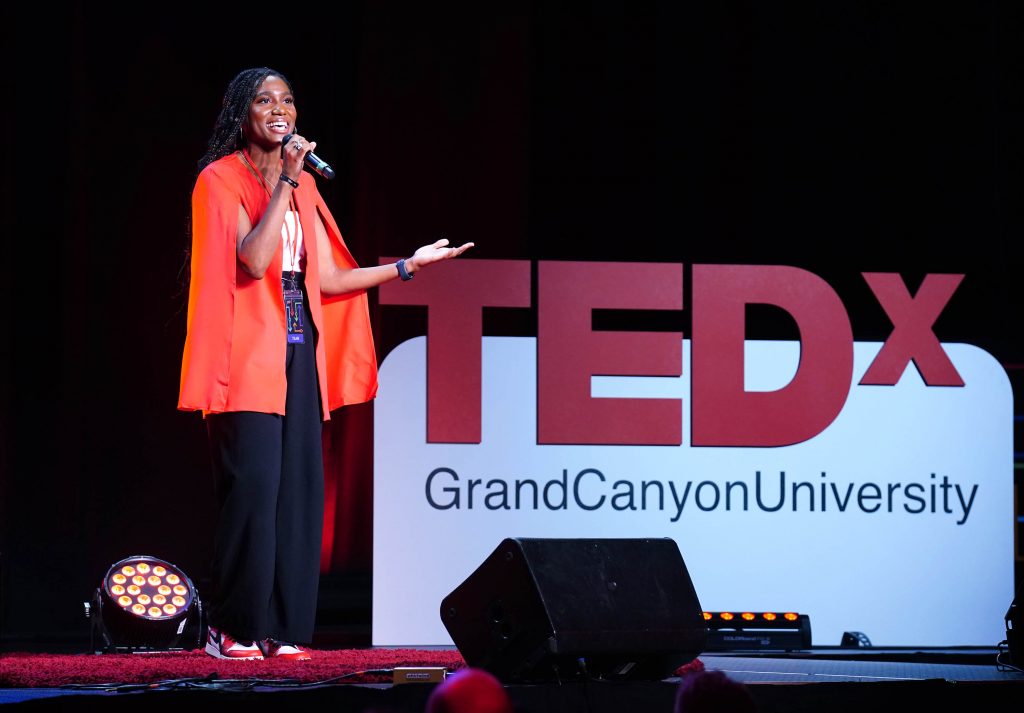
Mims, founder of the Neurodiversity Education Research Center and CEO of Science Prep Academy, sees great potential for those with neurodivergence in the financial sector.
He praised Drexel University in Philadelphia for its Center for Autism and Neurodiversity and Wells Fargo, Ernest Young and Goldman Sachs for programs designed to recruit neurodivergent employees.
“Let’s all embrace the power of neurodiversity together,” Mims said.
Fortune 500 leadership and education coaches Jennifer Edwards and Katie McCleary started the event by engaging in a mock argument as part of their theme: “Three Words to Elevate Emotional Intelligence.”
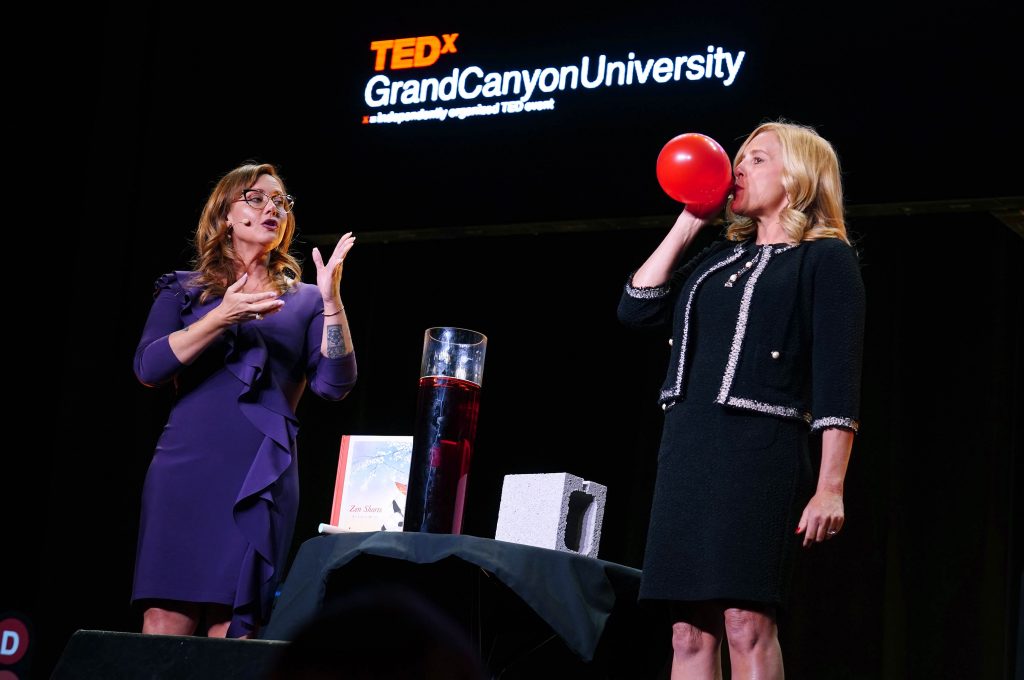
“The truth is, many of us struggle to control our emotions,” said McCleary, who blew up a balloon and later released it to illustrate how emotions inflate when we dwell on them and deflate when we process them.
Edwards and McCleary asked the audience to join the CIA.
In this case, “C” stands for concrete. If it’s not a concrete emotion, it’s clarity.
“I,” as in inflated. When you swell on emotions, they inflate, the duo told the crowd.

“A” stands for assumption. It’s important to interrupt assumption because it can damage a relationship, Edwards and McCleary espoused.
Nate St. John, who is scheduled to graduate from GCU in December with a bachelor’s degree in financial planning, threw the audience a curve by claiming he gained more time and energy and expanded his mental capacity by sleeping with the lights on.

“It’s fake,” St. John fessed up, adding that this was not too far off from get-rich schemes.
“Everyone seeks the maximum amount of achievement with the least amount of effort.”
St. John was mindful that children didn’t know how to ride a bicycle or tie a water balloon without someone teaching them.
“As we move into the next phases of life, you don’t want success to come easier,” St. John said. “You want to earn what you accomplish. You want a life of meaning and fulfillment. It’s understanding the long way is OK.”
K.L. Wells’ talk was inspirational. Wells, founder and CEO of VoicesinCourage, recalls the CEO of a fast-growing company telling her nearly five years ago that his son died from a drug overdose.
Her mind shifted to her own son, who was arrested at gunpoint in Washington because of his addiction. She was told jail would be a turning point if he came out of his psychosis.

“Everything changed in that moment,” said Wells, acknowledging that her son’s home, relationship with his girlfriend and career with the local fire services was shattered.
Wells embarked on a journey to understanding and helping victims of the chaos associated with addiction.
“If you think you’re alone, you’re not,” Wells said. “Almost 50% of families love someone who is addicted.”
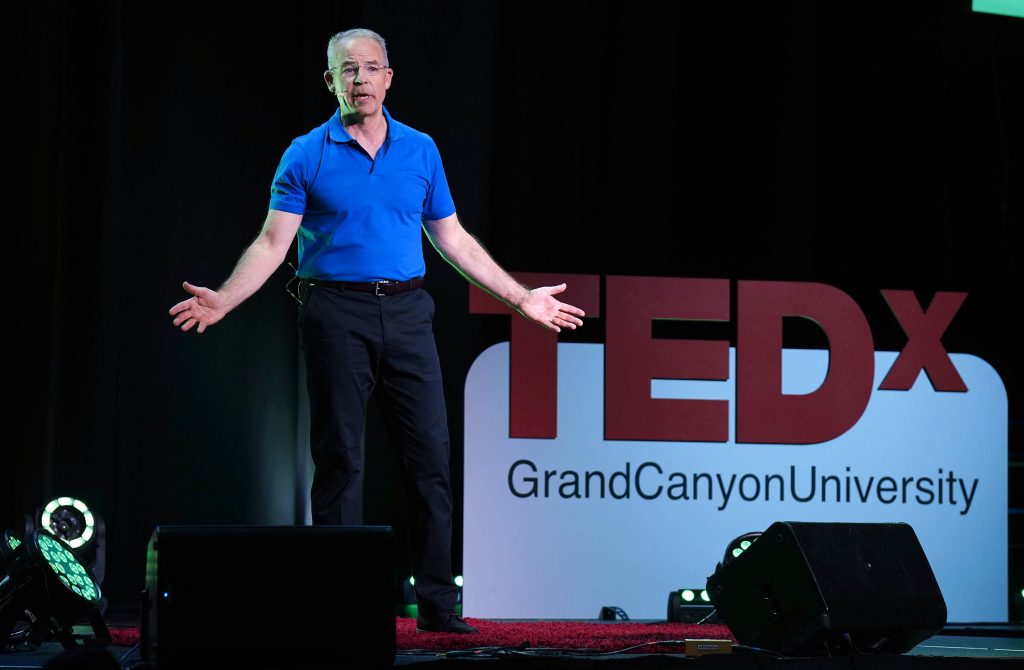
With the help of a friend, she learned to navigate the Washington state jail system. She also learned that it takes an average of five to six rehab stints for a recovery to take hold. Her son needed 12 stints.
“It’s been more than 11 months that he’s clean and sober,” Wells said to an applauding audience.
Twining, who has 50 years of agricultural experience, warned “climate change is real. The results we are and will experience are dire and scary.”
Twining stressed the need to remove carbon dioxide and put it back into the ground with the help of plants and roots.
Leaving soil undisturbed on a year-round basis will lead to healthier soil, he said, adding that we should not to be scared or manipulated.
“Choose facts, not fear,” Twining said. “It will change things.”
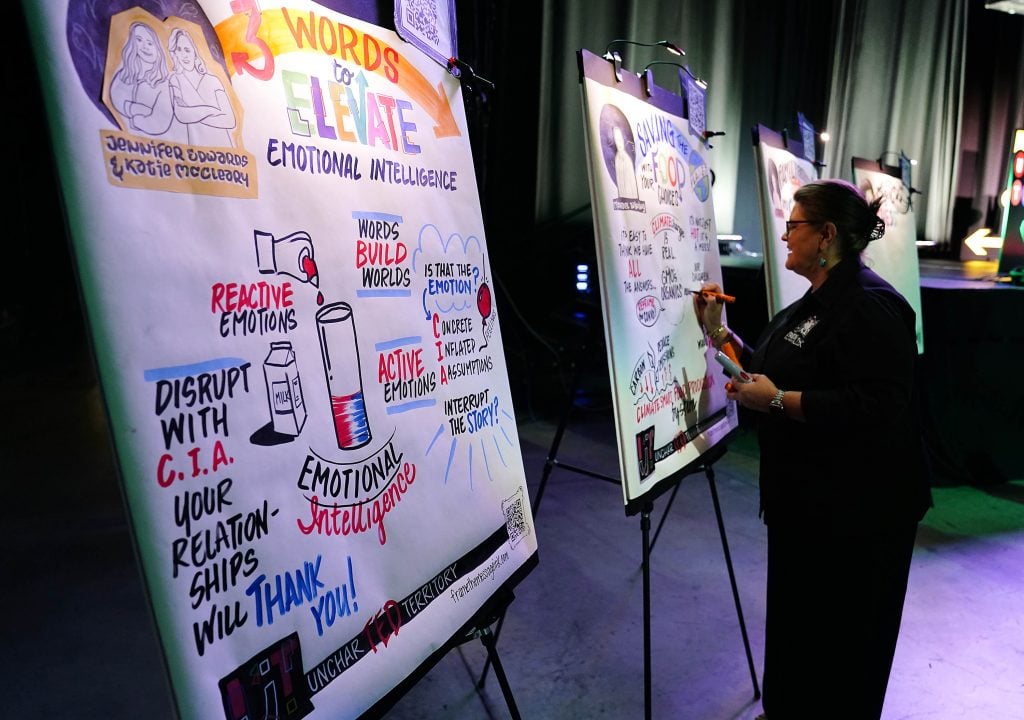
Singer/songwriter Harrison Boe, like Valentine, constantly compared himself to others on Spotify charts.
“I’m a competitive person,” said Boe, who spoke about “The Music of Chess.”
Boe pursued chess and fell in love with the strategy. He loved telling people how good he was, based on his ranking on a website. But his obsession became as troubled as his pursuit of musical popularity.

“The only issue was me and the pressure I put on myself to keep a number high that didn’t offer a value or identity," Boe said.
He eventually discovered that playing music or chess with others gave him satisfaction: “At the end of the day, your accomplishments don’t define you."
GCU News Senior Writer Mark Gonzales can be reached at [email protected]
***
Related content:
GCU News: TEDx program encourages prep freshmen to speak up
GCU News: TEDxGCU speakers share inspiring stories of perseverance



































































